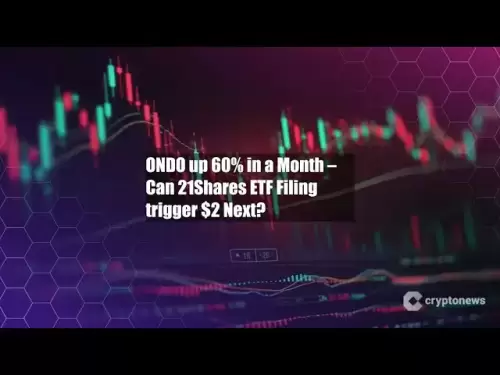-
 Bitcoin
Bitcoin $116400
-1.69% -
 Ethereum
Ethereum $3731
2.87% -
 XRP
XRP $3.119
-1.00% -
 Tether USDt
Tether USDt $1.000
-0.04% -
 BNB
BNB $774.0
1.01% -
 Solana
Solana $181.0
-2.25% -
 USDC
USDC $1.000
0.02% -
 Dogecoin
Dogecoin $0.2314
-2.16% -
 TRON
TRON $0.3145
1.76% -
 Cardano
Cardano $0.8087
0.22% -
 Hyperliquid
Hyperliquid $43.01
0.68% -
 Stellar
Stellar $0.4247
-0.93% -
 Sui
Sui $3.758
1.42% -
 Chainlink
Chainlink $18.30
1.99% -
 Bitcoin Cash
Bitcoin Cash $551.4
5.66% -
 Hedera
Hedera $0.2482
3.08% -
 Avalanche
Avalanche $23.70
0.18% -
 Litecoin
Litecoin $115.1
2.44% -
 UNUS SED LEO
UNUS SED LEO $8.972
-0.36% -
 Shiba Inu
Shiba Inu $0.00001370
0.73% -
 Toncoin
Toncoin $3.146
0.74% -
 Ethena USDe
Ethena USDe $1.001
-0.03% -
 Uniswap
Uniswap $10.49
3.95% -
 Polkadot
Polkadot $4.044
1.42% -
 Monero
Monero $328.9
2.43% -
 Dai
Dai $0.9998
-0.03% -
 Bitget Token
Bitget Token $4.510
-1.10% -
 Pepe
Pepe $0.00001231
-1.68% -
 Aave
Aave $293.4
2.16% -
 Cronos
Cronos $0.1294
2.89%
Why does Uniswap's transaction confirmation time take so long?
Uniswap's lengthy transaction times are due to Ethereum network congestion, gas fees, smart contract complexity, and its decentralized nature, with improvements on the way.
Apr 10, 2025 at 09:14 am
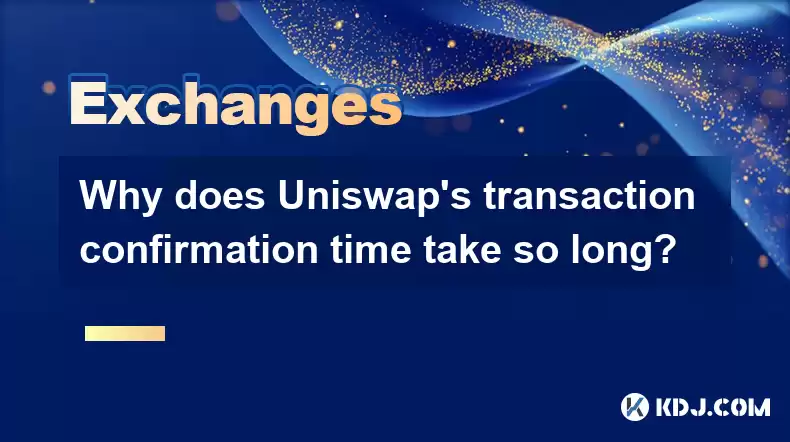
Uniswap, one of the leading decentralized exchanges (DEXs) on the Ethereum blockchain, is known for its user-friendly interface and robust liquidity. However, one common complaint among users is the lengthy transaction confirmation times. Understanding why Uniswap's transaction confirmation time takes so long involves delving into several key factors related to the Ethereum network and the mechanics of decentralized exchanges.
Ethereum Network Congestion
The primary reason for the extended transaction confirmation times on Uniswap is Ethereum network congestion. Ethereum, being a popular blockchain, often experiences high traffic, especially during peak times. When many users are interacting with the network simultaneously, the number of transactions waiting to be processed increases, leading to longer wait times.
- High demand for block space: Each block on the Ethereum blockchain has a limited capacity. When the demand for block space exceeds the supply, transactions can take longer to be included in a block.
- Gas prices: Users can set higher gas prices to incentivize miners to prioritize their transactions. However, during periods of high congestion, even high gas prices may not guarantee quick confirmation.
Gas Fees and Transaction Prioritization
Another significant factor contributing to Uniswap's transaction confirmation times is gas fees and transaction prioritization. Gas fees are the costs associated with executing transactions on the Ethereum network. Miners prioritize transactions based on the gas fees attached to them.
- Setting gas prices: Users can manually set the gas price for their transactions. A higher gas price increases the likelihood of quicker confirmation but also increases the cost.
- Gas limit: The gas limit determines the maximum amount of gas a transaction can use. If the gas limit is set too low, the transaction may fail, requiring resubmission and further delays.
Smart Contract Complexity
Uniswap's use of smart contracts adds another layer of complexity to transaction processing. Smart contracts are self-executing contracts with the terms of the agreement directly written into code. The execution of these contracts can be time-consuming, especially if they involve multiple steps or interactions with other contracts.
- Multiple contract interactions: Uniswap transactions often involve interactions with multiple smart contracts, such as liquidity pools and token contracts. Each interaction adds to the overall processing time.
- Complexity of operations: The complexity of the operations within the smart contracts can also impact transaction times. For example, swapping tokens between different liquidity pools requires more computational effort than a simple token transfer.
Decentralized Nature of Uniswap
The decentralized nature of Uniswap itself contributes to longer transaction confirmation times. Unlike centralized exchanges, where transactions are processed by a single entity, Uniswap relies on the Ethereum network's consensus mechanism, which can be slower.
- Consensus mechanism: Ethereum uses a proof-of-work (PoW) consensus mechanism, which requires miners to solve complex mathematical problems to validate transactions. This process can be time-consuming.
- Decentralized liquidity: Uniswap's liquidity is provided by users rather than a centralized entity. This decentralized approach can lead to slower transaction processing as it depends on the availability and responsiveness of liquidity providers.
User Experience and Interface
The user experience and interface of Uniswap can also influence perceived transaction confirmation times. While the actual processing time is determined by the factors mentioned above, the way the platform communicates transaction status to users can affect their perception of speed.
- Transaction status updates: Uniswap provides real-time updates on transaction status, but the clarity and frequency of these updates can impact user satisfaction.
- User interface design: A well-designed user interface can help manage user expectations and provide a smoother experience, even if the underlying transaction times remain unchanged.
Network Upgrades and Improvements
Efforts to improve the Ethereum network, such as Ethereum 2.0 and layer 2 solutions, aim to address some of the issues contributing to long transaction confirmation times. However, these improvements are still in progress and have not yet fully alleviated the problem.
- Ethereum 2.0: The transition to Ethereum 2.0, which includes a shift to a proof-of-stake (PoS) consensus mechanism, is expected to increase the network's capacity and reduce transaction times.
- Layer 2 solutions: Solutions like Optimism and Arbitrum aim to process transactions off the main Ethereum chain, reducing congestion and speeding up confirmation times. However, these solutions are not yet universally adopted.
Understanding the reasons behind Uniswap's lengthy transaction confirmation times involves considering multiple factors, from network congestion and gas fees to the complexity of smart contracts and the decentralized nature of the platform. While improvements are being made to address these issues, users must currently navigate these challenges when using Uniswap.
Frequently Asked Questions
Q: Can I speed up my Uniswap transactions?
A: Yes, you can attempt to speed up your Uniswap transactions by setting a higher gas price. However, this increases the cost of the transaction, and during periods of high network congestion, even high gas prices may not guarantee quick confirmation.
Q: Are there alternatives to Uniswap that offer faster transaction times?
A: Yes, some decentralized exchanges built on other blockchains, such as those on the Binance Smart Chain or Solana, may offer faster transaction times due to their different network architectures and consensus mechanisms.
Q: How can I check the status of my Uniswap transaction?
A: You can check the status of your Uniswap transaction by using a blockchain explorer like Etherscan. Simply enter your transaction hash, and you will be able to see its current status and estimated confirmation time.
Q: Does Uniswap have any plans to improve transaction speeds?
A: Uniswap is actively exploring solutions to improve transaction speeds, including integrating with layer 2 scaling solutions and supporting Ethereum 2.0 upgrades. However, these improvements are still in development and not yet fully implemented.
Disclaimer:info@kdj.com
The information provided is not trading advice. kdj.com does not assume any responsibility for any investments made based on the information provided in this article. Cryptocurrencies are highly volatile and it is highly recommended that you invest with caution after thorough research!
If you believe that the content used on this website infringes your copyright, please contact us immediately (info@kdj.com) and we will delete it promptly.
- Pump, Bonk, Buyback: A Wild Ride in Crypto Town!
- 2025-07-25 19:10:12
- Punisher Coin, Dogecoin, Shiba Inu: Meme Coin Mania in the 2025 Crypto Landscape
- 2025-07-25 19:10:12
- Celestia's Token Control: Buyback & Staking Overhaul in Focus
- 2025-07-25 19:50:11
- Altcoins, Bitcoin, and Crypto Coins: What's Hot in the NYC Crypto Scene?
- 2025-07-25 19:55:52
- Litecoin Price Breakout Imminent? Rally Potential Explored!
- 2025-07-25 17:30:12
- Ether ETFs Surge, Bitcoin Wobbles: Is an ETH Breakout Imminent?
- 2025-07-25 16:50:12
Related knowledge
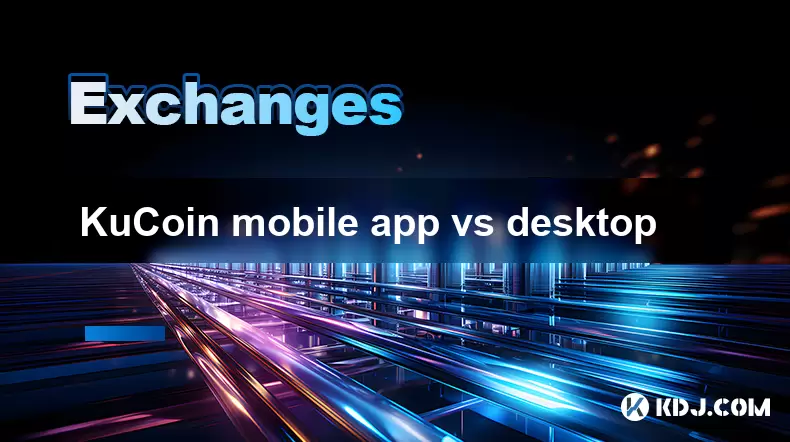
KuCoin mobile app vs desktop
Jul 19,2025 at 08:35am
Overview of KuCoin Mobile App and Desktop PlatformThe KuCoin ecosystem offers both a mobile app and a desktop platform, each designed to cater to diff...
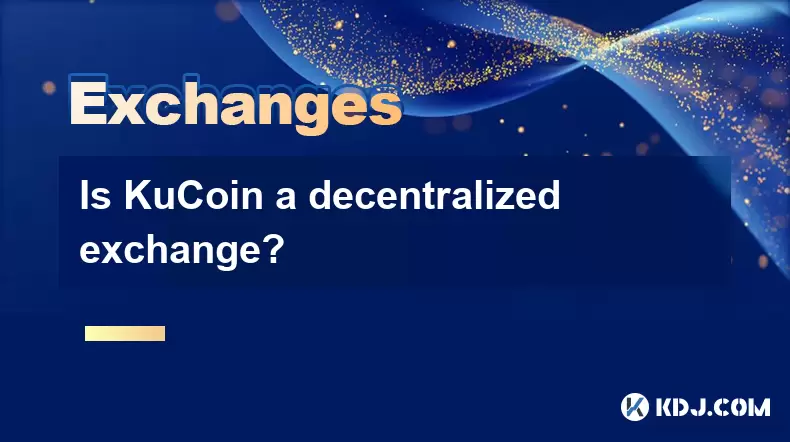
Is KuCoin a decentralized exchange?
Jul 18,2025 at 03:15pm
Understanding Decentralized Exchanges (DEXs)To determine whether KuCoin is a decentralized exchange, it's essential to first understand what defines a...
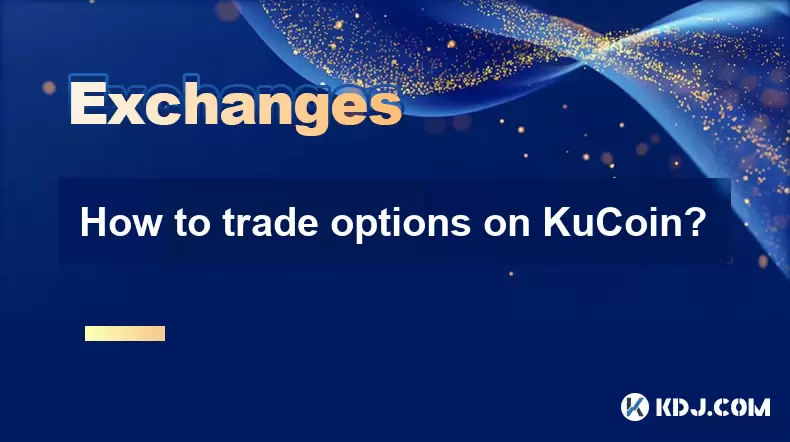
How to trade options on KuCoin?
Jul 19,2025 at 03:42am
Understanding Options Trading on KuCoinOptions trading on KuCoin allows users to speculate on the future price movements of cryptocurrencies without o...
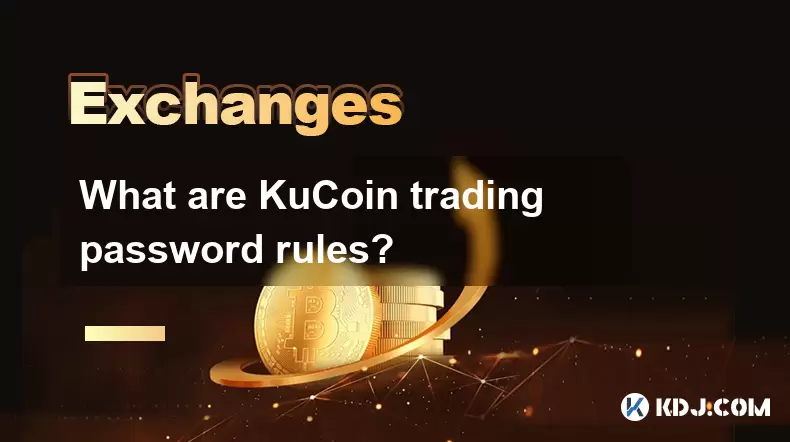
What are KuCoin trading password rules?
Jul 20,2025 at 07:56am
Understanding the Purpose of a Trading Password on KuCoinOn KuCoin, a trading password serves as an additional layer of security beyond the standard l...

Who is the CEO of KuCoin?
Jul 20,2025 at 09:35am
Background of KuCoinKuCoin is one of the largest cryptocurrency exchanges globally, known for its diverse range of trading pairs and user-friendly int...
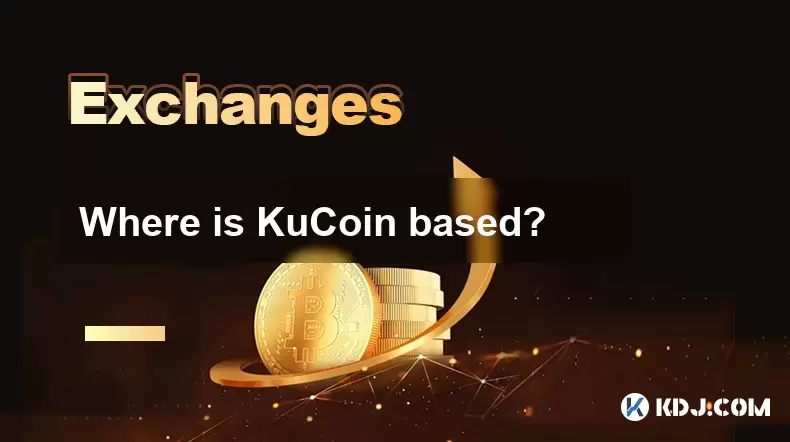
Where is KuCoin based?
Jul 22,2025 at 10:35pm
Understanding KuCoin's Global PresenceKuCoin is one of the most recognized names in the cryptocurrency exchange market, serving millions of users glob...

KuCoin mobile app vs desktop
Jul 19,2025 at 08:35am
Overview of KuCoin Mobile App and Desktop PlatformThe KuCoin ecosystem offers both a mobile app and a desktop platform, each designed to cater to diff...

Is KuCoin a decentralized exchange?
Jul 18,2025 at 03:15pm
Understanding Decentralized Exchanges (DEXs)To determine whether KuCoin is a decentralized exchange, it's essential to first understand what defines a...

How to trade options on KuCoin?
Jul 19,2025 at 03:42am
Understanding Options Trading on KuCoinOptions trading on KuCoin allows users to speculate on the future price movements of cryptocurrencies without o...

What are KuCoin trading password rules?
Jul 20,2025 at 07:56am
Understanding the Purpose of a Trading Password on KuCoinOn KuCoin, a trading password serves as an additional layer of security beyond the standard l...

Who is the CEO of KuCoin?
Jul 20,2025 at 09:35am
Background of KuCoinKuCoin is one of the largest cryptocurrency exchanges globally, known for its diverse range of trading pairs and user-friendly int...

Where is KuCoin based?
Jul 22,2025 at 10:35pm
Understanding KuCoin's Global PresenceKuCoin is one of the most recognized names in the cryptocurrency exchange market, serving millions of users glob...
See all articles

























